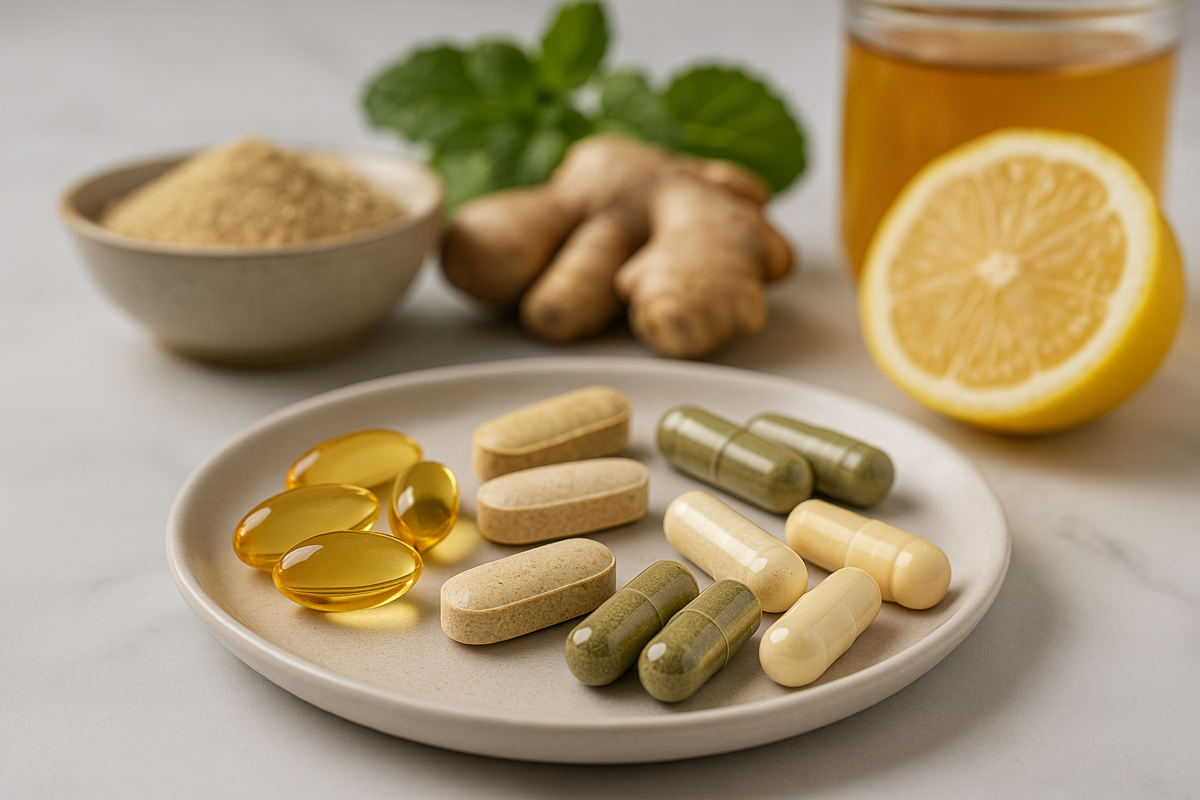A Practical, Science-Informed Guide for People Looking for Holistic Support
Living with ADHD or chronic anxiety can feel overwhelming — especially when focus, emotional regulation, and rest are all affected at the same time. While medication and therapy are often the most effective core treatments, many people also want natural ways to support their mental health.
Below is a clear, research-informed guide to supplements that show real promise for ADHD and anxiety. This isn’t meant to replace medical advice — it’s a simple breakdown of what the science actually says.
1. Omega-3 Fatty Acids (EPA + DHA)
Best for: ADHD focus + anxiety reduction
What research shows:
Omega-3s — especially EPA-rich formulas — are among the most researched natural supports for ADHD. Multiple studies show they can improve attention, memory, and emotional regulation.
For anxiety, Omega-3s help lower inflammation and support neurotransmitter balance, especially in people with chronic stress.
How to take:
- Look for high EPA formulas (EPA:DHA ratio of 2:1)
- Typical dosage: 1000–2000 mg daily
- Best taken with food
2. Magnesium (Especially Glycinate or L-Threonate)
Best for: Anxiety, restlessness, racing thoughts, poor sleep
Why it works:
Magnesium helps calm an overstimulated nervous system. Many people with anxiety or ADHD are low in magnesium due to high stress and poor sleep quality.
What research shows:
Studies show magnesium can reduce anxiety symptoms, support better sleep, and regulate the stress response.
Best forms:
- Magnesium glycinate (calming, best for anxiety)
- Magnesium L-Threonate (crosses the blood-brain barrier, supports focus)
3. L-Theanine (Often Paired With Caffeine)
Best for: Focus + calm without jitters
Why it works:
L-Theanine increases alpha brain waves, which promote a calm but alert mental state. When combined with caffeine, research shows it improves attention, accuracy, and cognitive performance.
For anxiety:
L-Theanine reduces physical tension and emotional reactivity without causing drowsiness.
How to take:
- 100–200 mg
- With or without caffeine
- Can be used “as needed” for stressful days
4. Rhodiola Rosea
Best for: Burnout, stress overload, ADHD-related fatigue
Why it works:
Rhodiola is an adaptogen that helps the body regulate cortisol. If anxiety or ADHD symptoms worsen under stress, Rhodiola may help stabilize energy and mental clarity.
Research highlights:
Clinical trials show improved attention, reduced fatigue, and better stress tolerance within 2–4 weeks.
5. Zinc
Best for: ADHD symptoms in people with nutritional deficiencies
Why it matters:
Low zinc levels are associated with attention issues and impulsivity. Supplementing helps restore neurotransmitter balance — especially dopamine pathways related to focus and motivation.
Who benefits most:
People with diets low in whole foods, picky eaters, or individuals who frequently rely on fast food.
6. Ashwagandha
Best for: Chronic stress, anxiety, and sleep issues
Why it works:
Ashwagandha reduces cortisol and supports a calmer baseline. Research shows reductions in generalized anxiety symptoms and improved stress response.
Caution:
Avoid if pregnant, breastfeeding, or with certain thyroid conditions.
7. Ginkgo Biloba
Best for: Cognitive function, memory, and attention
Research findings:
Some studies show Ginkgo can improve ADHD symptoms in children and adults when used alongside traditional treatment. It increases blood flow and supports brain oxygenation.
Note:
Effects vary widely — talk to a provider first, especially if taking blood thinners.
8. Probiotics & Gut-Brain Support
Best for: Anxiety, mood regulation, and inflammatory ADHD symptoms
The gut-brain axis plays a major role in emotional stability. Some probiotic strains — like Lactobacillus rhamnosus and Bifidobacterium longum — have been shown to reduce anxiety and improve stress resilience.
Important Safety Note
Natural doesn’t always mean safe.
Before starting supplements, talk with us — especially if you’re already on medication for ADHD, anxiety, or depression. Some supplements can interact with prescriptions or be unsafe in high doses.
Bottom Line: Natural Support Can Help — But Should Be Personalized
The best supplement plan depends on your symptoms, stress levels, lifestyle, and overall health.
For many people, the most helpful combination tends to be:
- Omega-3s (EPA-rich)
- Magnesium glycinate
- L-Theanine
- A targeted adaptogen (Rhodiola or Ashwagandha)
When paired with therapy, medication (if needed), sleep, nutrition, and a strong routine, these supplements can offer meaningful support.

